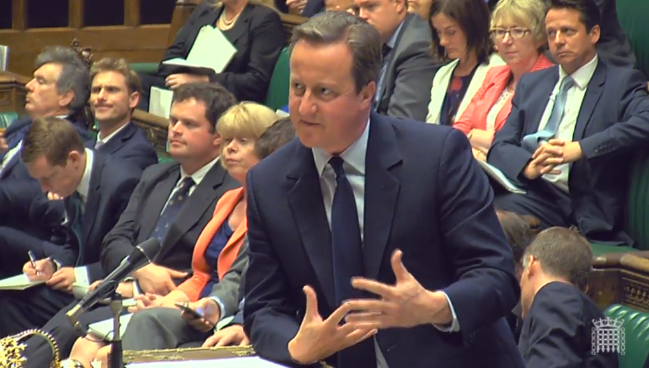There may be a general election on 13 October – Boris Johnson and Michael Gove need to get on with it
The prime minister is still most likely to be Boris Johnson, despite the attractions to journalists of stories about an Anybody But Boris campaign


The executive of the 1922 Committee of backbench Conservative MPs has set out the timetable for the party’s leadership election. Candidates will be nominated on Thursday – each one needs only two other MPs to propose and second them – and the voting of the first stage will take place next week.
The names of the two candidates who come out top will then go to a ballot of all party members, with the new leader announced on 2 September.
The accelerated timetable – when he resigned on Friday David Cameron said “we should aim to have a new prime minister in place by the start of the Conservative Party conference”, which starts on 2 October – means that the new prime minister could call a general election for 13 October.
The new prime minister is likely to want to go to the country quickly in order to unite the Conservative Party behind a detailed plan for Brexit, as well as to secure a personal mandate and to crush the Labour Party.
The timing is slightly complicated by the Fixed-term Parliaments Act, because that takes the formal right to call an election out of the prime minister’s hands. But given that the Conservatives do have a majority the new prime minister has a way round the Act.
It requires the Government to propose a motion of no confidence in itself, which will seem quaint, but then, after a two-week waiting period, the House of Commons has to be dissolved and an election held. That means the party conferences could be cancelled and an election held on 13 or 20 October.
That prime minister is still most likely to be Boris Johnson, despite the attractions to journalists of stories about an Anybody But Boris campaign. The executive of the 1922 Committee is not exactly a Johnson cabal, but they are mostly Leavers and they want to get on with it. They recognise that Johnson is probably their best option so they don’t mind a shorter timetable which helps him.
David Cameron is not keen to yield to Johnson, but has obviously decided not to get involved in any funny business to try to stop him. The emergency device might have been to resign immediately and to recommend to the Cabinet that Theresa May, the Home Secretary, be interim prime minister during the Tory leadership election.
That might have given her the chance to rebrand herself as someone determined to make Brexit work, with knowledge of the immigration system and able to take advantage of the civil service starting work on the terms of the Brexit deal.

But Cameron decided against that last-ditch attempted spoiler – or he was perhaps too much in shock to consider it.
So Johnson it is likely to be. There will be another candidate against him in the final round, who could be May or someone else – Stephen Crabb, the Work and Pensions Secretary, has made a good first impression, for example.
But the speed of the timetable is going to make it harder for Johnson and Michael Gove, his lead negotiator, to answer the questions that have been asked ever more insistently since the referendum vote about the terms of Brexit.
Those questions have to be answered in more detail for a general election than they were for the referendum campaign. Until now, the Leavers had the excuse that they have not had the support of civil servants in drawing up a plan. Johnson and Gove won’t get their hands on the new Cabinet Office unit set up today until 2 September, but they need to do more work on it now.
They have to explain how they can achieve the three apparently incompatible aims they set out in the referendum campaign: access to the single EU market; exclusion from free movement of workers; and cancelling our net contribution to EU funds.
Let them get on with it.
Join our commenting forum
Join thought-provoking conversations, follow other Independent readers and see their replies
Comments
Bookmark popover
Removed from bookmarks